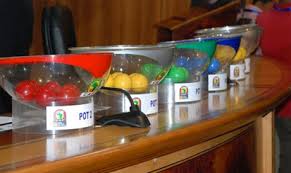January 30 – African football chiefs admit that the system of drawing lots in their major competition must be revised after Mali’s quarterfinal dream in the Africa Cup of Nations was unfairly dashed.
Guinea reached Sunday’s meeting with Ghana at the expense of Mali via a random draw, the pair having finished level in Group D after they drew all three pool matches 1-1.
It is the first time lots have decided a team’s qualification in the tournament since 1988, when Algeria profited at Ivory Coast’s expense.
One representative from Guinea and Mali took part in Thursday’s draw, which involved selecting balls from a bowl. Mali’s football association president Boubacar Diarra went first and pulled out the ball that placed them third in the group.
With Diarra in tears, Amara Dabo, financial director of the Guinea sports ministry, then drew the ball that confirmed his side in second place. Dabo said: “The god of football fortune has smiled upon Guinea after this hard long journey.”
Former Mali international and ex-Tottenham and West Ham striker Frederic Kanoute expressed his disappointment at the drawing of lots to decide who went through. He tweeted: “This is no longer sport. But courage to our Guinean brothers.”
Guinea coach Dussuyer and Mali boss Henri Kasperczak had also both said before Thursday’s draw that it was an unfair way of separating the teams.
Guinea and Mali could easily have gone to extra time – or even penalties – and the Confederation of African Football (CAF), which organises the tournament, said that an alternative way of separating teams would be considered in future.
CAF media director Junior Binyam said: “We have to stand by the regulation but also think about how we improve it. It’s not fair to have a team going out like this. It really is the worst decision – to have to make a decision this way – because everybody expected it would be decided on the field.”
Binyam believes the process may be removed by the time the next Nations Cup takes place in 2017.
“The decision of the agenda is not mine but I think it’s a matter of concern for members of both the organising committee and the CAF executive committee,” he told BBC Sport.
“Regulations are not static, they are dynamic. We will find a way of improving the criteria to make them be decided by actions on the field.”
Contact the writer of this story at moc.l1745227700labto1745227700ofdlr1745227700owedi1745227700sni@w1745227700ahsra1745227700w.wer1745227700dna1745227700

